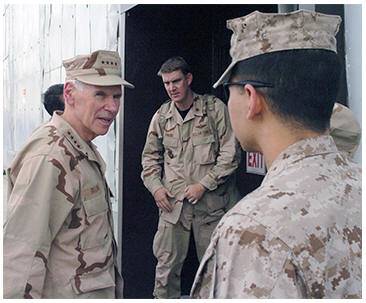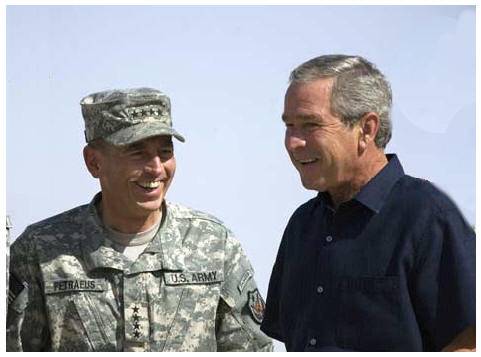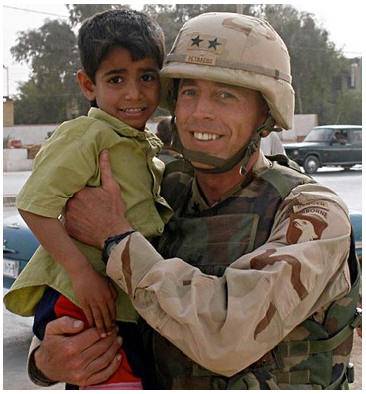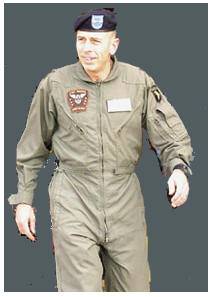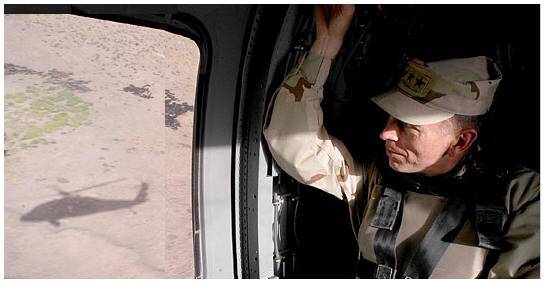|

|
The Chain Of Command
The departure of Admiral. William J. Fallon gives us a rare insight
into a secret world of relationships between the highest-ranking
general officers and their civilian masters. This is a world in which
only two dozen or so three-and four-star officers get regular face
time with the civilian bosses in meetings and video-teleconferences.
1
|
| |
|
General Petraeus Pushed Admiral Fallon Out
The scuttlebutt in the Pentagon, is there was an officer under his
command who effectively outranked him, one who had a direct pipeline
to the president, and one who in his own imperious fantasy started the
ball rolling to destroy his uncooperative boss.
|
 |
| |
|
|
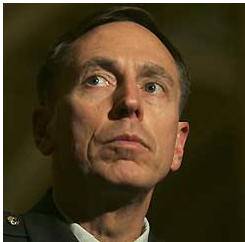
|
David Petraeus
The man most responsible for the departure of Fallon is General.
David Petraeus, commander of U.S. forces in Iraq, the savior of the
war and the Bush administration with the surge, the counter-insurgency
genius, the Washington-savvy Princeton grad, and a pretty boy called
"King David" by many.
1
|
| |
|
Fallon Couldn't Stand Petraeus
"It is well-known that Fallon has long been at odds with Gen. David
Petraeus.... I have heard from several sources that the two men
dislike each other and that their disagreements have been tense,
sometimes fierce."
Fallon told Petraeus that he considered him to be "an ass-kissing
little chickens**t" and added, "I hate people like that," the sources
say. That remark reportedly came after Petraeus began the meeting by
making remarks that Fallon interpreted as trying to ingratiate himself
with a superior.
2
|
 |
| |
|
|
 |
Fallon Worried About Pakistan And Nukes
The CENTCOM commander believed the United States should be
withdrawing troops from Iraq urgently, largely because he saw
greater dangers elsewhere in the region. "He is very focused on
Pakistan," an extremely unstable state with both nuclear weapons.
|
| |
|
| |
|
Petraeus Flies To Washington
In a highly unusual political role for an officer who had not
yet taken command of a war, Petraeus was installed in the office
of Minority Leader Mitch McConnell, a Republican from Kentucky, in
early February just before the Senate debated Bush's troop
increase. According to a report in the Washington Post Feb. 7,
senators were then approached on the floor and invited to go
McConnell's office to hear Petraeus make the case for the surge
policy.
Fallon was strongly opposed to Petraeus' role as pitch man for the
surge policy in Iraq adopted by Bush in December as putting his
own interests ahead of a sound military posture in the Middle East
and Southwest Asia – the area for which Fallon's CENTCOM is
responsible.
2
|
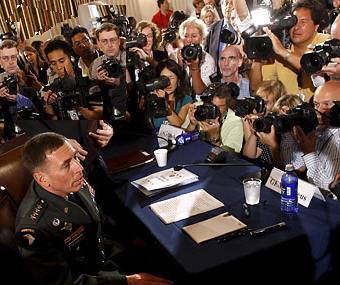 |
| |
|
|
|
|
|
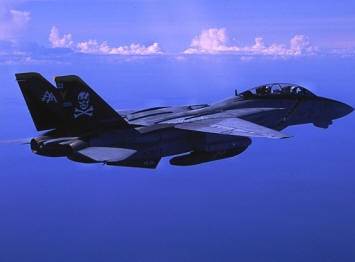 |
Bush Made Fallon Second Chair To Petraeus
Fallon was a fighter squadron commander, and now he has to watch
Petraeus calling the shots. In the end, Fallon was a theater commander
but not really in charge, and at odds with the White House over Iran.
Eventually, in the words of one Pentagon official, Fallon became what
is called a "hall walker," with less and less responsibility and
little to do.
3
|
|
|
|
Fallon Wanted Out Of Iraq
The two were at odds on virtually every element of Iraq policy,and
Bush couldn't stand Fallon. He thought that the Iraq war was a dead
end and a drain on resources, that the surge should be brought to a
quick and successful conclusion, and that the draw-downs should
continue.
But then Petraeus had the White House's backing, and Fallon,
despite his command and authority to set priorities and decide on what
resources are needed, was frozen out.
1
|
 |
| |
|
|
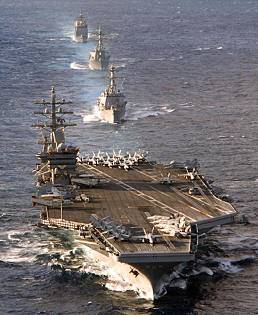
|
Refused
An Order From Bush
He demonstrated his
independence from the White House when he refused in February to go
along with a proposal to send a third naval carrier task force to the
Persian Gulf, as reported by IPS in May. Fallon questioned the
military necessity for the move, which would have signaled to Iran a
readiness to go to war.
Fallon also privately vowed
that there would be no war against Iran on his watch, implying that he
would quit rather than accept such a policy.
|
| |
|
|



